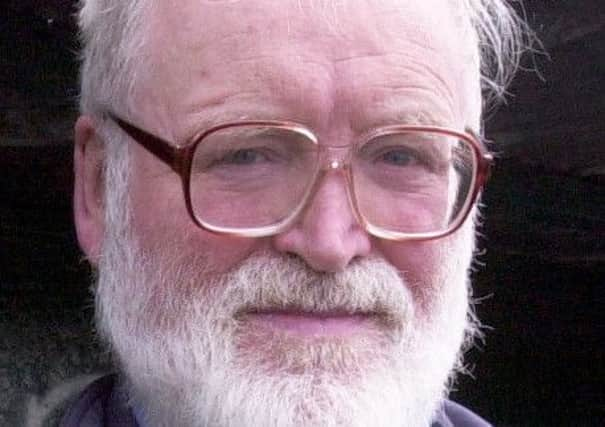Proinsias lit fire under Irish language movement in Derry


Mr Ó’Mianáin, a founding member of the Cearta Gael group, which fought for recognition of Irish in schools, churches, the courts and health system, died on Thursday and was laid to rest in the City Cemetery following funeral mass at the Holy Family, Ballymagroarty on Saturday.
Fr. Arthur O’Reilly, a family friend who worked with Prionsias’ brother Paddy at the Ros Guill summer college, addressing mourners as Gaeilge, described him as “a man of principle who was not afraid to stand up for the language and the welfare of the people.”
Advertisement
Hide AdAdvertisement
Hide AdFr. O’Reilly said he had never been “afraid to face embarrassment or injustice when he faced up to the state or whatever authority he challenged” and that he was a “staunch, upright and brave man.”
Fittingly mourners joined in a hymn to the city’s patron St Columba, ColmCille Éarlamh Án, which was written by Prionsias, and sung to the air of Mór Cluana.
Friend and former Cearta Gael picketer Tomás Ó’Donghaile said: “He was a tremendous inspiration at the time because, at that time, just like now, the authorities were all ‘West Brit’ types, that included the Dáil, the Free State and the churches, both Protestant and Catholic.
“None of them took seriously the point that Gaeilge was a widely spoken language. They would come to occasions and say ‘Dia dhaoibh mo chairde’ and then blatter away ‘i mBéarla.’
Advertisement
Hide AdAdvertisement
Hide Ad“I think the most important thing is that at the time he awakened people.
“He inspired people to stand on their own two feet and stood up for Gaeilge as a major form of communication and first language, according to the Bunreacht.
“The new people who started bringing up their youngsters with Irish in Derry came directly from Prionsias and the inspiration that Prionsias brought into the language movement.”
Leon Concheanainn, who alongside Prionsias knocked on every door in Derry conducting a grass roots plebiscite for half and hour’s compulsory Irish in all schools in the city, said he was ahead of his time but faced barricades at every step.
Advertisement
Hide AdAdvertisement
Hide Ad“Everything he was doing was put down. He wanted all Irish schools in the Gaeltacht. I think he was dead right at the time, and you know, proven to be right.
“They thought he was too radical.”
Mr Ó Mianáin is mourned by his wife Róis, and four children Phádraig, Róisín, Nóirín and Ghearailt, and leaves a huge legacy.
He was the driving force behind the establishment of an Irish language mass at Nazareth House 50 years ago, sowed the seeds for the demands for an Irish Language Act today, while one of his sons Dr Pádraig Ó Mianáin edited the first major English-Irish dictionary since Tomás de Bhaldraithe’s over 50 years ago with ‘ghost estates,’ ‘cyberbullying,’ ‘retweet,’ ‘defriend’ and ‘cloud computing’ amongst words now included in the lexicon.
In 1983 Mr Ó’Mianáin led a Cearta Gael delegation to the local Council demanding that the name of the Carnhill estate be restored to the original Irish name, Ard a Chairn.
Advertisement
Hide AdAdvertisement
Hide AdTwo members of the DUP, John Henry and Willie Hay, walked out of the meeting due to Mr Ó Mianáin’s use of Irish. Also during the 1980s Mr Ó Mianáin objected to local Conradh Na Gaeilge premises in Rosemount being used for a political meeting between Sinn Féin and NorAid. And in 1985 he went on hunger strike in Mountjoy after being jailed for demanding “spiritual and cultural rights” at Mass in Cnoc Fola, sparking protests across the country. Ar dheis Dé go raibh a anam.